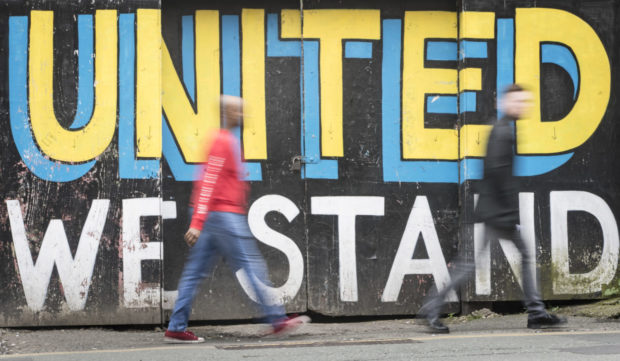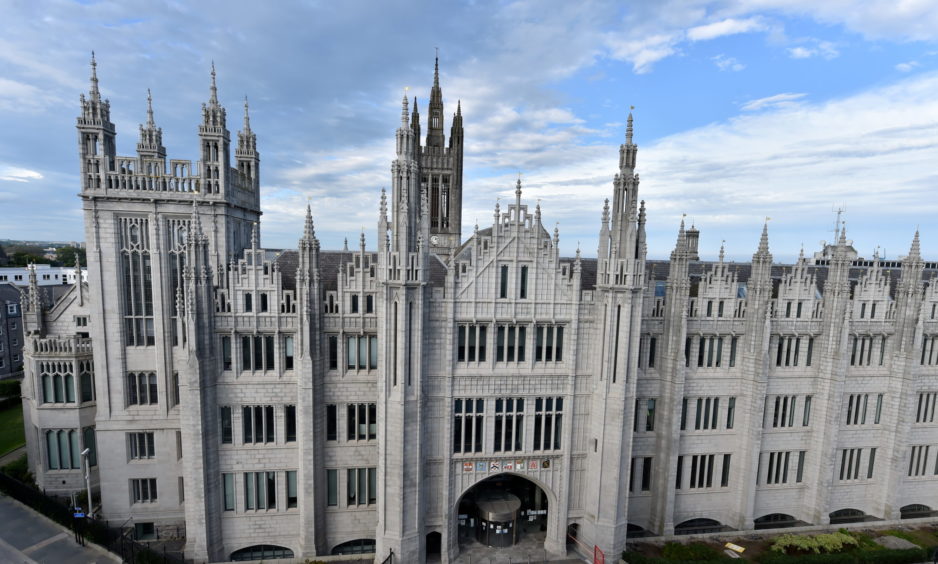Aberdeen City Council is among the organisations to have waded into the debate around Scotland’s new Hate Crime Bill by suggesting the language is “strengthened” to allow a balance between respecting freedom of speech and tackling hate crime.
Criticism of the controversial draft laws has centred on plans for a new offence of “stirring up hatred”, with a growing chorus of voices expressing concerns the proposed legislation will stifle freedom of expression, including the Scottish Police Federation, Law Society of Scotland, the BBC, the National Secular Society and a range of faith groups.
The Scottish Conservatives will bring forward a debate in the Scottish Parliament on Wednesday to vote that the Hate Crime Bill be withdrawn but it is expected to fail in its intention with no other party prepared to drop the laws in their entirety.
Almost 2,000 submissions have been made to Holyrood’s Justice Committee with the first tranche including Aberdeen City Council’s representation, which welcomes the bill, claiming it would allow a “clearer definition of hate crime and well-defined procedures for dealing with it”.
However, the local authority has advised that the definitions and language contained within part two of the bill, which introduces the new offence of stirring up hatred, be “strengthened to ensure that an appropriate balance is maintained to protect those in society who are most vulnerable to prejudice while preserving the right to comment or debate on matters, hence maintaining a thriving democracy and society, where pluralism and freedom of expression are protected”.
Aberdeenshire Council has also raised concerns around the language used within the stirring up hatred offence, as this can either apply where an individual “intends” to stir up hatred against someone from a protected group, or where it is “likely” that hatred will be stirred up against such a group.
In their submission, the organisation said while they agree that the new offence be introduced, the use of the wording “or is likely to” removes the intent element from the proposed offence, which they claimed could be perceived as “draconian in terms of the powers conferred to the police to investigate individuals where there is no intention to stir up hatred”.
Objection from churches
Several churches across the north, north-east, Western isles, Fife and Perth are also among those objecting to the proposals, with one citing fears “free speech will cease”.
Yet the proposed legislation does contain provisions on freedom of expression, which provide that behaviour or material is not to be taken as threatening or abusive solely on the basis that it involves or includes discussion or criticism of religion or religious practices.
The Banchory Christian Fellowship is among the churches concerned by the possible impact on the “most fundamental of freedoms” – that of free speech.
The independent church, which consists of around 90 members from the Banchory area of Aberdeenshire, claims in its representation that the bill as it stands “seems to be concerned with suppressing dissent on certain hot topics of the day”.
Meanwhile, the Free Church of Scotland (Continuing) Presbytery of Skye and Lochcarron cautioned that “Christians in public and even private settings would live in a climate of fear” were the draft offences to be introduced.
In a lengthy submission, Rev Jacob Brothers, lead pastor at Glenrothes Baptist Church, said many Christians fear Scotland “seems to be heading toward a totalitarian culture which does not allow opposition, freedom of speech or dissent”.
He adds: “Surely the primary mark of a free society is that we are free to disagree with one another on huge things even if that offends or makes others have hurt feelings.
“In the current form of the bill, subjective interpretations of offence will be misconstrued as hate speech. Our laws must be objective and quantifiable rather than subjectively interpreted.”
Surely the primary mark of a free society is that we are free to disagree with one another on huge things even if that offends or makes others have hurt feelings.”
Rev Brothers, Glenrothes Baptist Church
However, other organisations have welcomed the bill, including a range of charities such as Age Scotland and Stonewall Scotland, who believe it will offer greater protections to the groups they represent.
The Grampian Regional Equality Council agrees a “holistic approach” is needed in tackling “inequality, discrimination and prejudice within society”.
In its submission, it welcomes the extension of the stirring up hatred offences.
The Fife Centre for Equalities similarly backs the proposed legislation, arguing freedom of speech is “explicitly protected” by the proposed legislation”.
Justice Secretary Humza Yousaf, in a piece for The Herald, said he recognises there are some concerns about the implications of part of the bill – particularly around freedom of expression.
The SNP politician has stressed he is speaking to many of the “key interests” who have raised “legitimate issues that have to be considered”, stating there will be a “key focus” on how the new stirring up offences operate.

